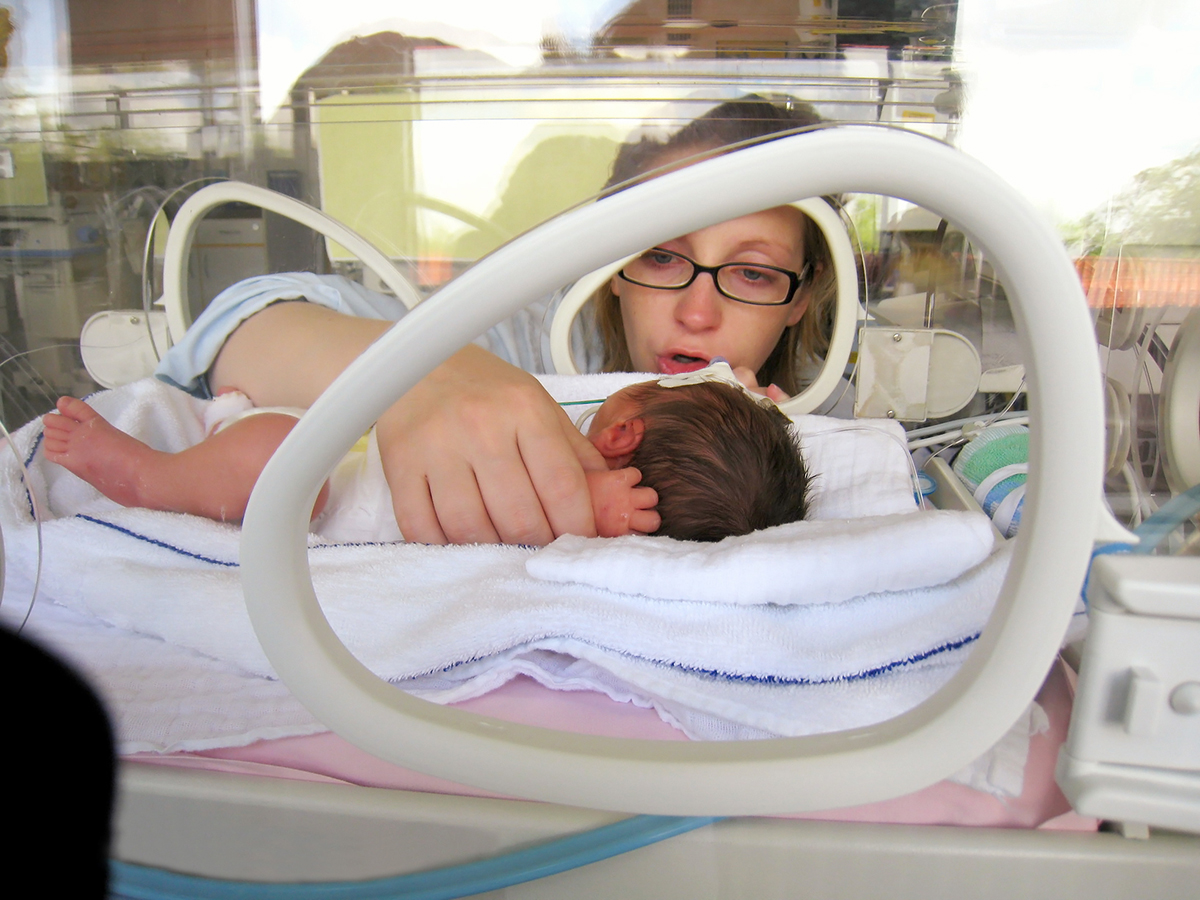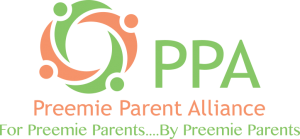Q&A with Kiera Sorrels of NICU Parent Network

NICU Parent Forms NICU Support Organization for Preemie Parents
UPDATE: The Preemie Parent Alliance is now the NICU Parent Network.
Neotech recently spoke with Keira Sorrells, Founder & President of the Preemie Parent Alliance, to discuss the organization, its history, and how it helps others.
Neotech: What’s your professional background? What’s your personal experience with the NICU?
Keira Sorrells: Believe it or not, my degree is in Family & Consumer Sciences with a concentration in residential interior design! I enjoyed an exciting career in high end design, working all over the country for ten years before my life shifted focus dramatically. Like many couples today, my husband and I experienced infertility when we decided to start a family. After 2 ½ years we finally learned we were pregnant with not one baby, but five! Yes, that’s right, quintuplets. A couple weeks after the initial shock wore off we had a very serious discussion with our perinatologist who plainly laid out the statistics of high-risk, high order multiple pregnancies and high order multiple births. He told us that I, and all five babies, had a 50% chance of surviving the pregnancy if I chose to carry all 5. After being so laser-focused on having my own baby for 2 ½ years, the thought that I could end up with no healthy babies at all was not something I was willing to consider. He went on to explain the percentages of “successful” birth outcomes, which I later learned meant “live births”, not necessarily full-term births, rose to 85% with triplets and 97% with twins. I made the heart wrenching decision to undergo a procedure to reduce the pregnancy to triplets. It is a decision that haunted me for years afterwards.

Unfortunately, we did not make it to our target goal of 34 weeks with our triplet daughters. Avery, Lily, and Zoe were born at 25 weeks 5 days weighing between 1lb 4oz and 1lb 10oz. It was not quite a “successful” outcome. Avery and Lily spent 120 days in the NICU and came home with apnea monitors and NG feeding tubes. Zoe seemed to bear the brunt of their extreme prematurity, ultimately spending 9 ½ months in the NICU before coming home with hearing aids due to profound hearing loss, oxygen tanks, and a g-tube on continuous feeds. We went from a NICU in the hospital to having a mini-NICU in our living room with IV poles, monitors, alarms, tubes, wires, and medications.
We thought the worst was behind us once we finally had all of our girls home. Despite the weekly follow up and therapy appointments each of our girls required, we were a family under one roof, until Zoe got sick. She was rehospitalized with flu and pneumonia requiring admittance to the hospital for 5 days. Upon her apparent recovery, we brought her home only to rush her back to the ER a day and a half later due to respiratory distress. Her baseline O2 requirement at home was 1/2L, in the hour it took us to get to the ER her tank was turned up to 4L and her pulse ox was in the 80s. After a steady 24 decline, Zoe coded in the PICU and the doctor asked us if we wanted them to keep working on her or if we wanted to hold her. Without hesitation or discussion, my husband and I both replied, “We want to hold her.” That was nearly ten years ago on February 16, 2008.
Neotech: What spurred you on to create the Preemie Parent Alliance?
KS: After Zoe’s death, I searched for the answer to the unanswerable question “Why did this happen to her? to us?” I battled major depression, generalized anxiety disorder and PTSD for over eight years. My personal struggle with mental health was challenging to say the least. The more I learned about NICU families and the trauma we experience, it became clear that I was far from alone.
We started a local nonprofit to support NICU families transitioning home from the hospital which led to other opportunities to work on a state level with other prematurity stakeholders. In June of 2010, I attended a coalition meeting in Washington DC with national-level organizations such as AAP, NANN, AWHONN, NPA, etc. In the course of this meeting, feeling incredibly intimidated by all of the acronyms these attendees had after their names, I learned of astounding work being done in the Maternal Infant Health community that would ultimately benefit parents of NICU babies. I was able to preview a NICU journal and heard of training modules for nurses to assist parents in preparing for discharge. I was overwhelmed and thrilled to know about this work but I realized, out of the 65+ people in the room, I was only 1 of 3 NICU parent advocates.

I thought to myself, how wonderful that this work is happening, but are these professional organizations including parents in the design and development of the materials? I quickly learned the answer to that question was “No” and that made no sense to me. I thought back to my interior design days oddly enough. I would never design a home for a client without an enormous amount of input from them, beyond what colors they liked. I needed to understand how they lived in their space, what their routines were like, what was important to them, what made them feel at peace, etc. I had to be my client and have many, many conversations back and forth putting out ideas, listening to their feedback, and ultimately creating a home, using my aesthetic and functional expertise that reflected their perspective and personality, not what I want in my own home. If I were to simply take on a client, go through weeks and weeks of decision making without their input, and at the end present it to the client with the thought that they would love it and have no objections to anything because I was experienced at my craft, well that just doesn’t work. It is the same way when we look at guidelines, policies, programs, and education for staff, babies, and families. Without the input of the families, who are the ultimate beneficiaries of the work, and without understanding what it is like to endure a traumatic birth, NICU stay, and perhaps loss of your own child, it is impossible to create ANYTHING that will help, support, and serve the NICU families in the ways they need it.
I was one mother from the South and knew I could not attempt to bring a parent voice to Maternal Infant Health without a network of other NICU parents alongside me. I was fortunate enough to receive a grant that funded the first ever Preemie Parent Summit in October 2010 which brought together parents just like me who had experienced preterm birth and infant loss and had transformed their experience in programs and organizations that served NICU parents. With the help of an incredible founding leadership team that included Hand to Hold, Graham’s Foundation, PreemieWorld, Parent Resource Network and National Perinatal Association we were able to launch the network in March 2012.
Neotech: What is the Preemie Parent Alliance?
KS: The Preemie Parent Alliance is a network of NICU Parent Support Organizations that have each been founded by or are run by a parent who has had a NICU experience or a perinatal/neonatal loss. We are committed to representing the needs and best interests of NICU families in all facets of healthcare policy, care guidelines, advocacy, education, and family support. We started this Network with three foundational guideposts.
First, was to bring parent led support organizations together: The fact is, preterm birth and birth complications are not going away. There is no magic pill that will eradicate prematurity which means hundreds of thousands of families across the US need support. It is misguided to think that one single organization can serve all of the emotional and practical needs of all of these parents and do it well.
The analogy I like to use is to think of those coke machines where there are practically limitless possibilities to the flavor combinations you can create. Those machines exist because everyone has a different flavor that speaks to them. In the same way, all NICU parents in crisis need some form of support, however, what that support looks like and what works for each family is different. By bringing together these organizations, we can all do a more effective job in providing these families with what they need to become empowered advocates and caregivers for their medically fragile babies.
Second, by bringing these professional parent leaders together, we can create a professionalized voice for current and future NICU parents. When care guidelines and hospital policies are written and educational materials are developed, our network can bring that informed, unified voice and perspective into the discussion.
Third, was to develop meaningful relationships with industry, provider associations, and other maternal infant health stakeholders to ensure the NICU parent voice is viewed as equal in importance to that of providers and that NICU Parent Leaders are welcomed and included in Maternal infant Health discussion.
Neotech: What community does it serve?
KS: PPA serves the needs of exceptionally talented and committed NICU Parent Support Leaders that are interested in making meaningful connections, collaborating on a variety of urgent issues NICU families are facing, and have a strong desire to contribute on a large scale to Maternal Infant Health. We also serve perinatal and neonatal providers, researchers, and industry stakeholders who embrace the importance of the NICU family voice.
Neotech: What resources does PPA offer?
KS: Resources for our members include quarterly educational webinars that we do in collaboration with the National Perinatal Association. We hold an annual Summit the last weekend of September to bring our members, providers, and stakeholders together to learn about current issues facing NICU families, develop leadership and program building skills, and to network with one another. We have a monthly newsletter highlighting the work our members are doing around the country and maintain a member’s only resource center with everything from videos to podcasts, to research articles, to websites that can enable their organizations to run smarter and be sustainable.
For providers, we have created an online CE course for NICU Staff in partnership with the National Perinatal Association and Patient + Family Care. This 7-module course is based on the NPA’s Interdisciplinary Recommendations for Psychosocial Support of NICU Families giving NICU staff in depth information and resources about the recommendations and strategies to implement them in their units. 15 parent leaders from PPA participated in developing and reviewing the course content and will act as co-instructors when a hospital or individual signs up for the course.
We also have a Speakers Bureau made up of seasoned and vetted speakers from our membership that are available for town hall meetings, company meetings, and state, regional or national conferences. The speakers do not simply share their traumatic stories, but rather they weave the medical literature into their experiences to ensure that every audience comes away with tangible strategies to improve the Family-Centered Care they deliver in their NICUs.
We provide consulting services for providers, industry, and other stakeholders to develop and review educational materials, care guidelines, research studies, and other resources.
Neotech: Who do you collaborate with at PPA?
KS: We have a very exciting partnership with the National Perinatal Association that enhances the reach of our members and theirs. Our members also participate as steering committee members and committee/work group members of the National Coalition for Infant Health and the International Neonatal Consortium. We have collaborated with the National Association of Neonatal Nurses to review content of their discharge planning module, Baby Steps to Home, and have reviewed content and provide resources for Your NICU Baby by The Wellness Network. Recently we have begun working with research teams to develop study questionnaires and informed consent protocols and documents that will enable NICU parents to feel better informed about opportunities to participate in research.
Neotech: If someone came away from this article remembering one thing, what would you like that to be?
KS: The members of the Preemie Parent Alliance are professional parent leaders in Maternal Infant Health with a depth of knowledge and understanding of the NICU parent experience that cannot be taught in medical school. Our members are uniquely qualified to collaborate with partners across sectors to ensure the work stakeholders do is accessible and effective in the care and support of NICU families. We are eager to collaborate with others to ensure every parent of a NICU baby has the support, education, and resources they need to become empowered advocates and caregivers for their babies.
Neotech thanks Keira for sharing her amazing story. If you’d like to learn more about PPA or any of its alliance members, please visit nicuparentnetwork.org.

